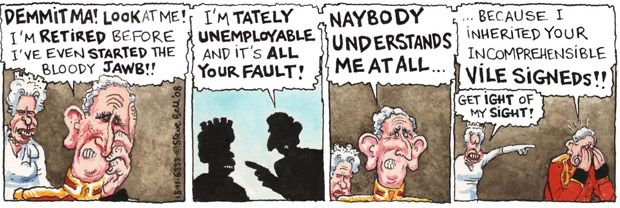A reader from France, SW, wrote to ask some questions about English intonation:
It is with great interest that I discovered your posts on ‘uptalk’ on Language Log, in which you briefly retrace the history of the study of the phenomenon. In several of these posts, you highlight the fact that the association of uptalk with unassertiveness and tentativeness is unfounded, to say the least.
May I ask you if you thereby intend to correct the view propagated by somewhat simplistic newspaper articles, or if you are also disputing the views held by certain linguists?
(I would like to specify that my question is by no means meant to be polemical. I am currently doing research on language change and suprasegmental innovations in Leeds, where young people have recently been observed to use rising tones (UNB rises, not HRTs) at the end of declaratives, and I am trying to obtain information about the history of research on uptalk.)
I also noticed that you had entitled one of your posts ‘uptalk is not HRTs’. Could I ask you what difference you would then make between uptalk and HRTs (I had hitherto assumed that Alan Cruttenden and Robert Ladd established a clear difference between UNB rises on the one hand, and HRTs, *that is, uptalk*, on the other hand).
These questions and their answers are a bit more "inside baseball" than usual for Language Log — but perhaps some readers will be interested, and the rest of you are hereby warned to move along to another post.
Read the rest of this entry »


